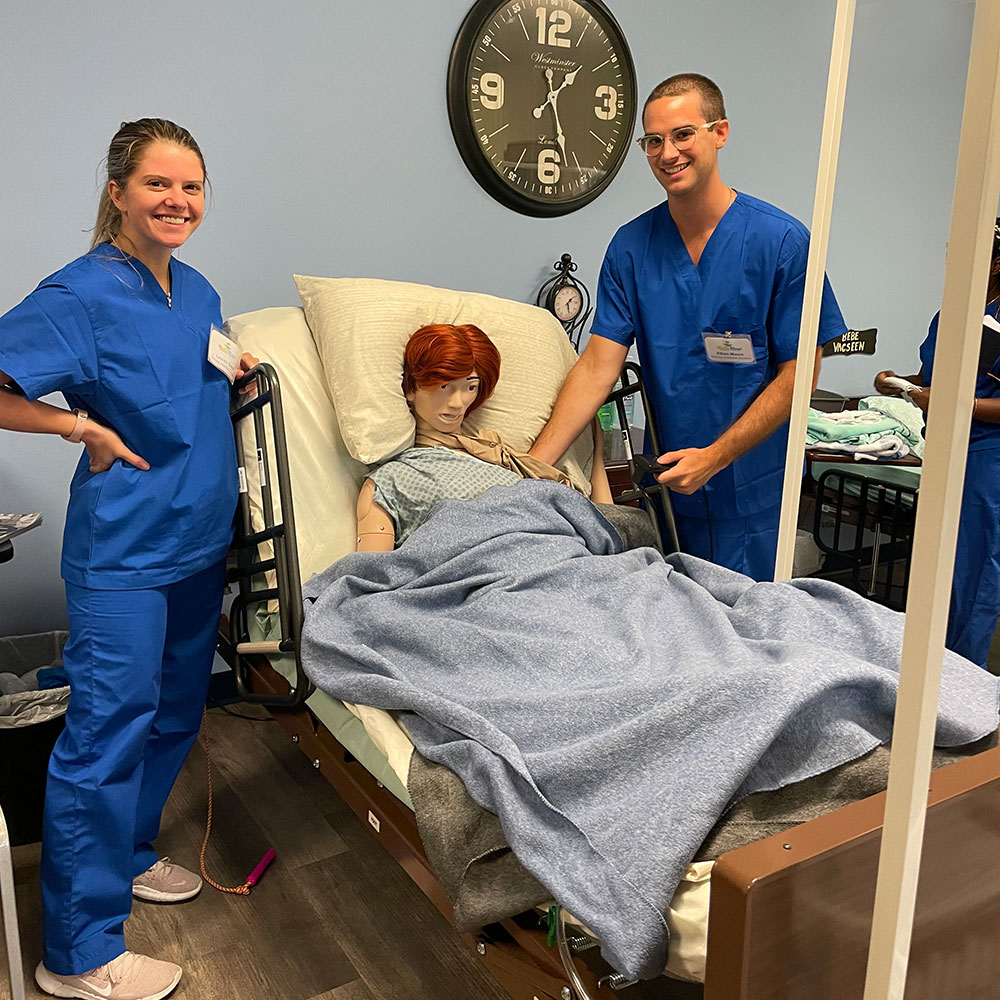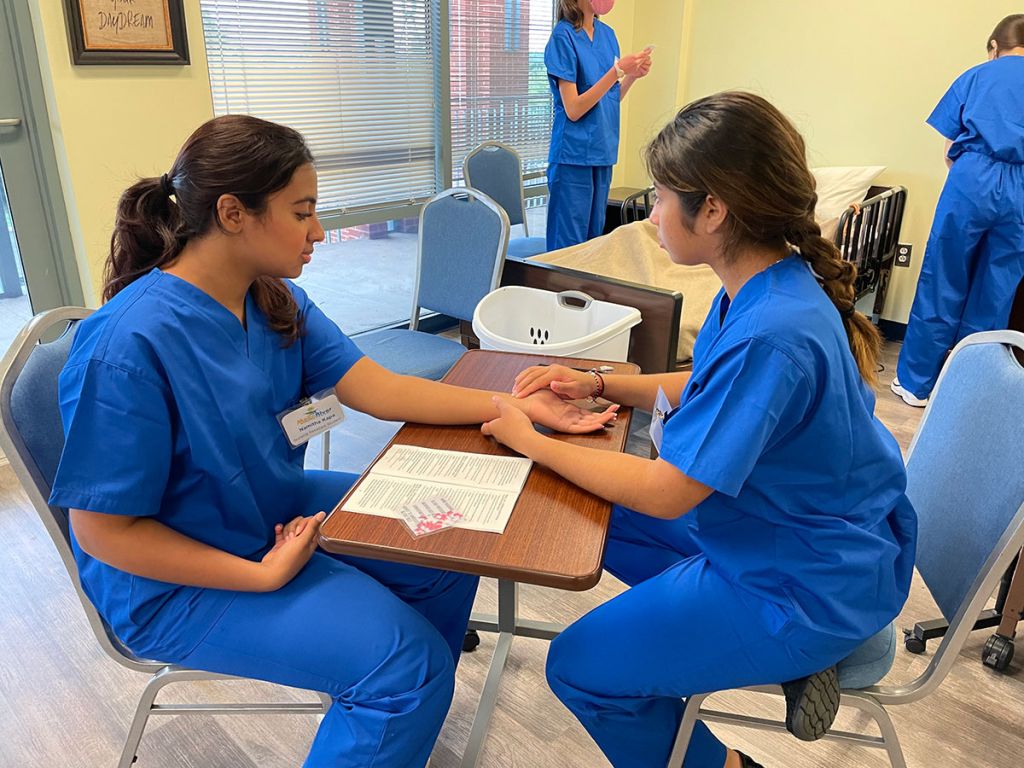CNA Classes: Everything You Need to Understand Before Getting Started
Wiki Article
Just How CNA Courses Can Aid You Release a Successful Job in the Clinical Field
CNA courses serve as a foundational stepping stone for individuals aspiring to enter the clinical area (CNA Classes). These programs impart essential abilities, consisting of effective interaction and personal care techniques. Students participate in hands-on training, connecting concept with functional application. As the need for health care specialists grows, the duty of a Qualified Nursing Assistant comes to be progressively substantial. This elevates questions about the various occupation paths and development opportunities that lie ahead for those that complete their trainingUnderstanding the Function of a Certified Nursing Aide
The function of a Qualified Nursing Assistant (CNA) is important to the health care system, functioning as a necessary link in between individuals and clinical team. CNAs mainly aid people with day-to-day activities such as showering, dressing, and eating, guaranteeing their convenience and self-respect. They are typically the initial factor of contact for patients, offering essential psychological assistance and companionship. In enhancement to personal care, CNAs are accountable for checking clients' crucial indications, reporting adjustments in condition to taking care of staff, and maintaining person records. Their jobs encompass ensuring sanitation in patient settings and assisting with mobility. This role needs a caring attitude, strong interaction abilities, and the capability to work effectively under stress. By helping with a smooth process within health care setups, CNAs play a significant component in enhancing the total client experience and sustaining the wider clinical team in providing high-quality treatment.Trick Abilities Acquired in CNA Courses

In addition, CNA programs emphasize personal treatment skills, incorporating help with day-to-day living tasks such as showering, clothing, and feeding. CNA Classes. Infection control strategies are another essential part, ensuring that pupils comprehend how to keep a risk-free environment for both people and themselves
Trainees obtain expertise in fundamental clinical terminology, facilitating better understanding of healthcare methods. Time administration skills are cultivated to aid CNAs focus on jobs successfully. Overall, these essential skills form the structure for an effective career in the medical area, preparing students to fulfill the diverse requirements of clients.
The Benefits of Hands-On Training
Getting sensible experience with hands-on training is vital for aiming CNAs, as it connects the space in between academic understanding and real-world application. This immersive understanding strategy enables pupils to establish crucial abilities needed for person treatment, such as efficient communication, empathy, and technical abilities. Involving in real-life scenarios permits trainees to recognize the dynamics of a medical care environment, cultivating confidence in their capacities.In addition, hands-on training helps students come to be aware of vital equipment and treatments, guaranteeing they are well-prepared for the obstacles of the work. It likewise offers possibilities to obtain immediate comments from teachers, boosting the finding out experience. By working directly with individuals under supervision, aspiring Website CNAs can sharpen their empirical abilities and find out to reply to different scenarios appropriately. Ultimately, hands-on training outfits these future health care professionals with the competence and guarantee essential to succeed in their duties.
Occupation Opportunities After Ending Up Being a CNA
Many career opportunities wait for individuals that finish their CNA training, opening up doors to numerous functions in the healthcare market. Certified Nursing Assistants (CNAs) are crucial members of the health care team, supplying straight individual care in setups such as healthcare facilities, nursing homes, and aided living facilities. Their duties can consist of assisting with daily living activities, keeping track of critical indicators, and providing emotional support to clients.Beyond standard setups, CNAs may likewise locate chances in specialized locations, such as rehabilitation facilities or home healthcare. Additionally, some might change right into functions in administrative support or client advocacy, leveraging their firsthand experience with patients. The need for CNAs remains to expand, driven by a maturing populace and an increased concentrate on top quality patient care. This high need guarantees that people getting in the area have a selection of options to go after, making it an attractive entry point into a satisfying career in medical care.
Pathways for Development in the Health Care Area
Improvement in the health care field offers numerous pathways for people looking for to enhance their jobs past the function of a Qualified Nursing Aide (CNA Classes). After obtaining experience, lots of CNAs opt to go after additional education and qualifications, such as ending up being an Accredited Nurse (LPN) or Registered Registered Nurse (RN) This change commonly includes enrolling in linking programs that identify their existing abilities
Additionally, continuous expert development with workshops and seminars can keep CNAs upgraded on sector standards, making them more anchor competitive candidates for advancement. As a result, the medical care area provides different methods for development, allowing CNAs to shape their profession trajectories effectively.
Regularly Asked Inquiries
The Length Of Time Do CNA Courses Generally Require To Total?
CNA courses generally take in between four to twelve weeks to complete, relying on the program framework. Aspects such as course strength, organizing, and the establishment's curriculum design can affect the total period of training.What Is the Cost of CNA Training Programs?
The price of CNA training programs varies extensively, generally varying from $300 to $2,000. Factors affecting this expense consist of location, program size, and whether the training is provided with community universities or personal organizations.Are Online CNA Classes Available?

What Is the Qualification Exam Process Like?
The accreditation exam procedure commonly includes a written test reviewing understanding and a skills presentation. check over here Candidates have to pass both parts to come to be licensed, ensuring they meet the necessary expertises needed for nursing aide functions.Do I Required Previous Medical Care Experience to Enroll in CNA Classes?
Prior medical care experience is not a requirement for enlisting in CNA classes. People from various backgrounds can enter the program, as it is developed to supply extensive training and knowledge essential for successful qualification and technique.Report this wiki page